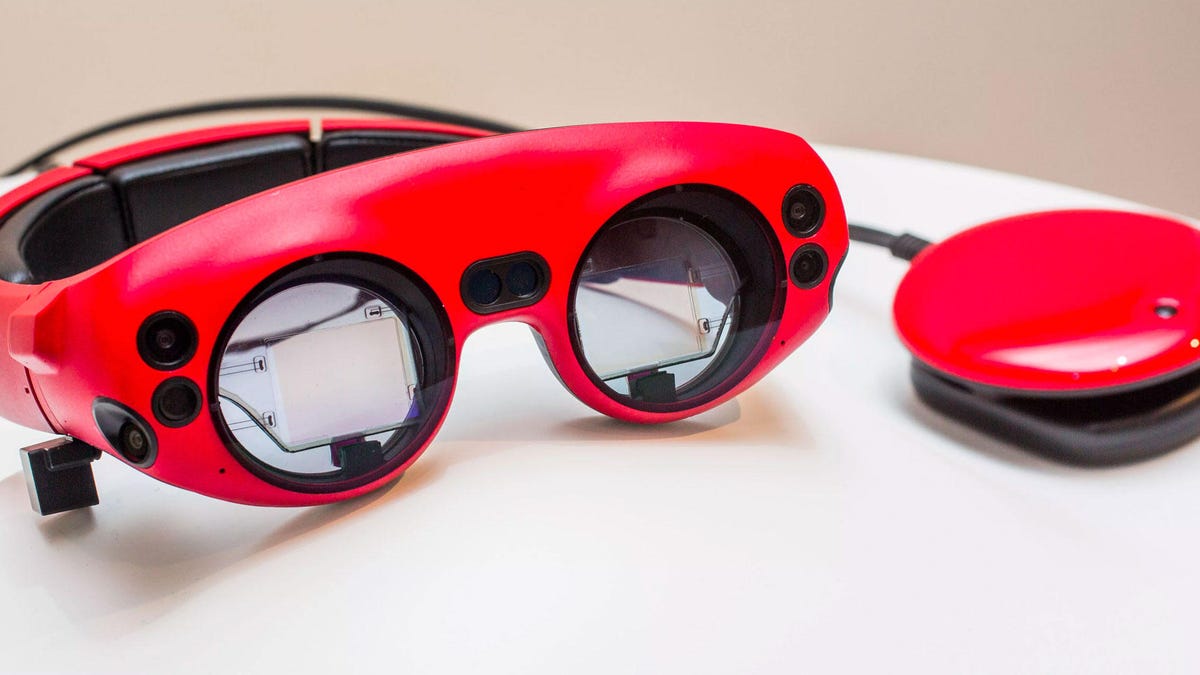Magic Leap announces layoffs due to COVID-19 and enterprise transition
The augmented reality hardware company is making big cuts.

A red version of the Magic Leap One, seen at the company's headquarters in 2018.
A future world of augmented reality might still be on the horizon, but companies exploring its possibilities have been hit with some challenges in the meantime. Magic Leap, a company that had big consumer aspirations and pivoted to a more business-focused approach last year, has announced a number of layoffs today due to financial strains amid the coronavirus.
"To better prepare Magic Leap for the future, we have taken a close look at our business and are making targeted changes to how we operate and manage costs," Magic Leap CEO Rony Abovitz said in a blog post. "This has made it necessary for us to make the incredibly difficult decision to lay off a number of employees across Magic Leap."
Abovitz said the company's Magic Leap 2 headset is still in the works. "Adapting our company to these new market realities and our increased focus on enterprise means we must align our efforts to focus on the areas of our business that advance our technology, ensure delivery of Magic Leap 2, and expand product-market fit and revenue generation," he said.
The original Magic Leap headset was, in many ways, always a developer-focused device, with a price tag well beyond what regular consumers would spend. Meanwhile, other companies like Qualcomm and Apple are focusing on AR running through smaller, more affordable headsets or directly on phones and tablets.
Magic Leap didn't immediately respond to a request for comment.

